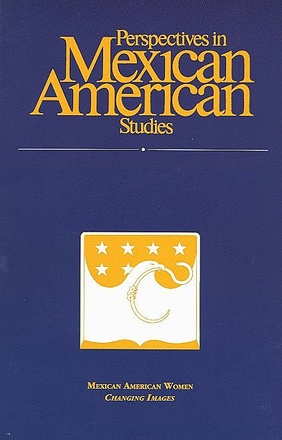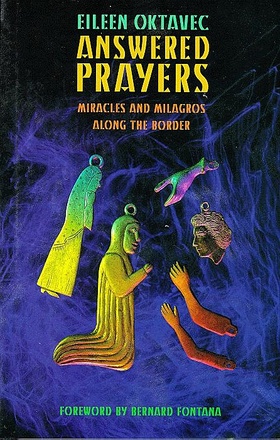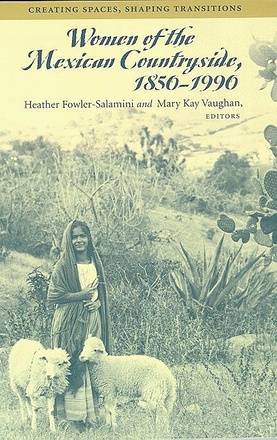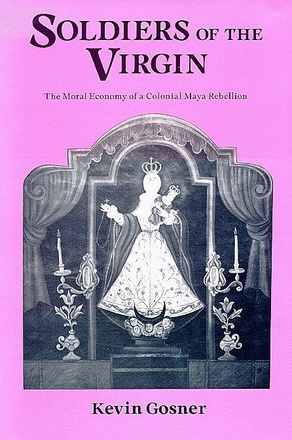Perspectives in Mexican American Studies, Volume 5
Although Chicano scholarship has grown significantly, research on women of Mexican descent remains sparse. This issue of Perspectives is devoted to Mexican American women, and examines the reasons of the lack of published scholarship as well as new directions and paradigms for research.
This compilation of articles and essays on Chicanas reflects the continuing effort to provide a corrective to the traditional works and models that have obscured the roles and experiences of women. Readers will find them thoughtful, instructive, and provocative.
Contents Beyond Machismo, La Familia, and Ladies Auxiliaries: A Historiography of Mexican-Origin Women's Participation in Voluntary Associations and Politics in the United States, 1870-1990, by Cynthia E. Orozco Beyond the Adelita Image: Women Scholars in the National Association for Chicano Studies, 1972-1992, by Gilberto Garc¡a "Faithful Hard-Working Mexican Hands": Mexicana Workers During the Great Depression, by Yolanda Ch vez Leyva Midwestern Mexican American Women and the Struggle for Gender Equality: A Historical Overview, 1920s-1960s, by Richard Santill Cooperative Re/Weavings: Astistic Expression and the Economic Development in a Northern New Mexican Village, by Mar¡a Ochoa Deconstructing the Corrido Hero: Caballero and Its Gendered Critique of Nationalist Discourse, by Mar¡a Cotera The Rearguarders Thesis and Latina Elites: A Case Study, by Isidro D. Ortiz
Answered Prayers
When Catholics in the Southwest ask God or a saint for help, many of them do not merely pray. They also promise or present a gifta tiny metal object known as a milagro. A milagro, which means "miracle" in Spanish, depicts the object for which a miracle is sought, such as a crippled leg or a new house. Milagros are offered for ...
Women of the Mexican Countryside, 1850-1990
Too often in the history of Mexico, women have been portrayed as marginal figures rather than legitimate participants in social processes. As the twentieth century draws to a close, Mexican women of the countryside can be seen as true historical actors: mothers and heads of households, factory and field workers, community activists, artisans, and merchants. In this new book, thirteen contributions by historians, anthropologists, and sociologists--from Mexico as well as the United States--elucidate the roles of women and changing gender relations in Mexico as rural families negotiated the transition from an agrarian to an industrial society.
Drawing on Mexican community studies, gender studies, and rural studies, these essays overturn the stereotypes of Mexican peasant women by exploring the complexity of their lives and roles and examining how these have changed over time. The book emphasizes the active roles of women in the periods of civil war, 1854-76, and the commercialization of agriculture, 1880-1910. It highlights their vigorous responses to the violence of revolution, their increased mobility, and their interaction with state reforms in the period from 1910 to 1940. The final essays focus on changing gender relations in the countryside under the impact of rapid urbanization and industrialization since 1940.
Because histories of Latin American women have heretofore neglected rural areas, this volume will serve as a touchstone for all who would better understand women's lives in a region of increasing international economic importance. Women of the Mexican Countryside demonstrates that, contrary to the peasant stereotype, these women have accepted complex roles to meet constantly changing situations.
CONTENTS
IWomen and Agriculture in Nineteenth-Century Mexico
1. Exploring the Origins of Democratic Patriarchy in Mexico: Gender and Popular Resistance in the Puebla Highlands, 1850-1876, Florencia Mallon
2. "Cheaper Than Machines": Women and Agriculture in Porfirian Oaxaca (1880-1911), Francie R. Chassen-López
3. Gender, Work, and Coffee in C¢rdoba, Veracruz, 1850-1910, Heather Fowler-Salamini
4. Gender, Bridewealth, and Marriage: Social Reproduction of Peons on Henequen Haciendas in Yucatán (1870-1901), Piedad Peniche Rivero
IIRural Women and Revolution in Mexico
5. The Soldadera in the Mexican Revolution: War and Men's Illusions, Elizabeth Salas
6. Rural Women's Literacy and Education During the Mexican Revolution: Subverting a Patriarchal Event?, Mary Kay Vaughan
7. Doña Zeferina Barreto: Biographical Sketch of an Indian Woman from the State of Morelos, Judith Friedlander
8. Seasons, Seeds, and Souls: Mexican Women Gardening in the American Mesilla (1900-1940), Raquel Rubio Goldsmith
IIIRural Women, Urbanization, and Gender Relations
9. Three Microhistories of Women's Work in Rural Mexico, Patricia Arias
10. Intergenerational and Gender Relations in the Transition from a Peasant Economy to a Diversified Economy, Soledad González Montes
11. From Metate to Despate: Rural Women's Salaried Labor and the Redefinition of Gendered Spaces and Roles, Gail Mummert
12. Changes in Rural Society and Domestic Labor in Atlixco, Puebla (1940-1990), Maria da Glória Marroni de Velázquez
13. Antagonisms of Gender and Class in Morelos, Mexico, JoAnn Martin
Soldiers of the Virgin
In the early summer of 1712, a young Maya woman from the village of Cancuc in southern Mexico encountered an apparition of the Virgin Mary while walking in the forest. The miracle soon attracted Indian pilgrims from pueblos throughout the highlands of Chiapas. When alarmed Spanish authorities stepped in to put a stop to the ...




